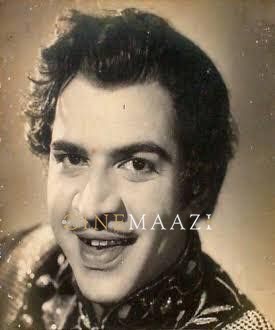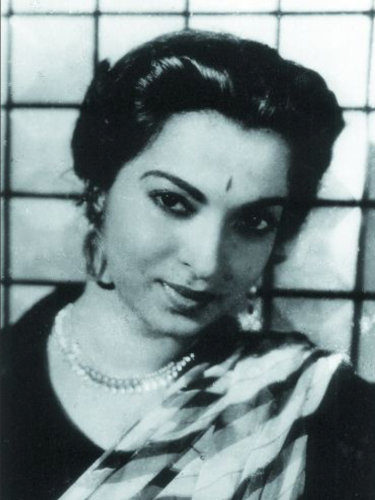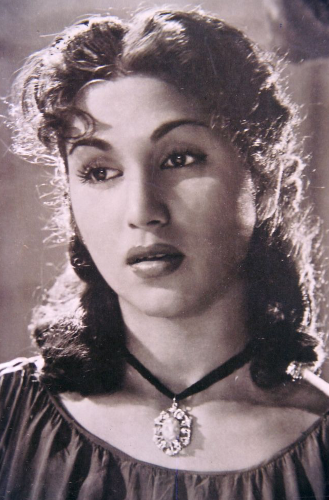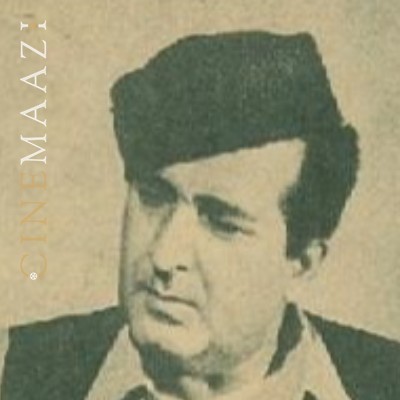Rasheed Atre

Subscribe to read full article
This section is for paid subscribers only. Our subscription is only $37/- for one full year.
You get unlimited access to all paid section and features on the website with this subscription.
Not ready for a full subscription?
You can access this article for $2 , and have it saved to your account for one year.
- Real Name: Abdul Rasheed Atre
- Born: 15 February, 1919 (Amritsar)
- Died: 18 December, 1967
- Primary Cinema: Hindi
- Parents: Khushi Mohammad
- Children: Wajahat Atre
Well-known music composer Rasheed Atre, considered a powerhouse of music and talent, contributed immensely to the Punjab school of music in Hindi film music. He composed music for numerous films over the course of his career spanning 25 years, both in India and Pakistan, where he migrated post Partition. Among the films he composed for in India are Shireen Farhaad (1945), Nateeja (1947), Paaro and Shikayat (1948).In Pakistan, he first served Radio Pakistan, Rawalpindi and then Lahore. Prospering in his career, he composed music in a whopping 54 Urdu and Punjabi films, such as Beli (1950), Shehri Babu (1953) which was his breakthrough Punjabi language film in Pakistan, Chann Mahi (1956), Sarfarosh (1956), Chengaiz Khan (1958), Anarkali (1958) for which he shared credits with Master Inayat Hussain, Sham Dhalay (1960), Gulfaam (1961), Shaheed (1962), Farangi (1964), Mirza Jat (1967), Bauji (1968) and Zarqa (1969). The famous marching song, Allah oh Akbar was also his composition. He was awarded the coveted Nigar Award thrice in a row, for Best Music for Saat Lakh (1957), Neend (1959) and Shaheed (1962).
Born in Amritsar, British India on February 15, 1919, Rasheed Atrewas the son of Khushi Mohammad, an accomplished singer and musician. Rasheed’s training began at an early age under his father, during which time he mastered several instruments especially the tabla. Formally trained by Ustad Ashfaq Hussain in classical music, he moved to Calcutta where his father became the supervisor of the department of music at New Theatres. Rasheed had a stint in the sound department but didn’t find it engaging enough. Fortunately, legendary actor-singer KL Saigal had heard him sing and advised his father that young Rasheed should enter the music department. Thereafter, he had the opportunity to learn and grow under famed music composer Rai Chandra Boral. Rasheed worked on New Theatres’ Mamta (1942), which was directed by I A Hafij, for which he composed seven songs. Next was Hindustan Film Corporation Calcutta's Pardanasheen (1942), again directed by I A Hafij, for which Rasheed recorded eleven songs, including a Mirza Ghalib ghazal,Ye hum jo hijr mein deewar-o-dar ko dekhtein hai. Incidentally, he is mentioned as R A Atra in the credits.
Moving to Bombay, he had the opportunity to work with senior composers such as Ustad Jhande Khan, Pandit Gobind Ram and Amir Ali in the film Pagli (1943), in which his compositions Gulshan mein ummidon ke tum and O aaiyo, main aaya, aayana jaiyo caught attention. Rasheed’s next, Panna (1944), directed by Nazam Naqvi, displayed his unique style in songs such as Sanwariya re kahe mare najariya, Taqdeerne jo aag lagaye bujha de, Sab haal bata denge jo ham and Kali ghata chhayee ho raja. The following year, he witnessed his most successful film - Shirin Farhad (1945) which he worked on along with Pandit Amarnath. Rasheed composed Main kya hun bhala ye batao to jaanu, Armano ki basti mein hum aag laga baithe and Tu hi to asra mujhko hai teri yaad ka. Navyug Chitrapat Bombay’s Kamra No. 9 (1946) was his next, another very successful film for which Rasheed composed different types of music including classical, with songs rendered by Ameerbai Karnatki, Naseem Akhtar, Mohammed Rafi and Saroj Borkar.
Recognised as a successful composer in his own right, Rasheed Atre bagged Bombay Talkies’ Muslim social Nateeja (1947), for which he composed two Nats -Bigdi meri bana do ya shah-e-madina and Ae khuda ye malike duniya-e-din, as well as popular songs Unhe bhi raaz-e-ulfatki khabar na hone di maine and Dua de rahe hain saja pane wale. This was followed by Navyug Chitrawali Bombay’s Paro (1947), in which Rasheed also sang a duet, O majhi, majhi O hamein sahara tera, as well as a solo, Jeevan panchiboli bole. The Shahid Lateef directorial Shikayat proved to be his last film in the Hindi film industry in India, releasing after he had migrated to Pakistan in 1948.
Greater success awaited Rasheed Atre in Pakistan, as he went on to compose music for several successful Urdu and Punjabi language films. Starting with Masood Prevez's Beli (1950), he followed up his debut with his compositions for Nazeer Ahmed Khan's Punjabi film Shehri Babu (1953) and Khatoon (1955) in which he used his popular Thumri style. His work in director Anwar Kamal Pasha's Chann Mahi (1956) and Sarfarosh (1956) was appreciated, as were his songs in director W Z Ahmed Roohi’s film, Waada (1957). He collaborated with Inayat Hussain for the musical compositions of Anwar Kamal Pasha's Anarkali (1958).
Rasheed Atrealso produced a film Mausiqar (1962) which was based on the life of a musician, in which he displayed his talent for classical music. He composed music in approximately 80 films, also winning the Nigar Award thrice for Best Music for Saat Lakh (1957), Neend (1959) and Shaheed (1962). Payal Ki Jhankar (1966) was his last film which is remembered for the popular song Husn ko chand, jawani ko kanwal kahtein hai by Qateel Shifai. Rasheed’s son, Wajahat Attre, the third-generation musician of the family, assisted his father before becoming an independent composer.
Rasheed Atre died on 18 December, 1967, at the age of 48.
References
Image credit: https://www.facebook.com/photo/?fbid=3574351472645280&set=a.655299527883837








.jpg)



